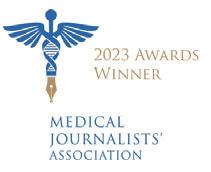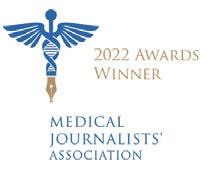the doctor
The magazine for BMA members



3
At a glance
Strike plans and ballots in Northern Ireland
4-7
‘Be resilient ...’
Should doctors be pressured to cope better when it’s the system that’s at fault?
8-11
More than able
How autistic doctors can thrive with the right environment
12-15
Not so idyllic
The apparently tempting vacancies that speak volumes about the recruitment crisis
16-19
‘Moral duty’
Environmental activist Sarah Benn on her five-month suspension
20-21
Voting with their feet
Doctors will continue to leave the NHS in large numbers unless conditions are improved, says a BMA report
22-23
Hear my concerns
A deaf doctor says her condition is common but feels like society’s ‘best kept secret’
24 Your BMA
Offer support to those in difficult positions

We simply cannot afford to lose more doctors. That is the stark message of a damning BMA report, which highlights just how dire the staff attrition rate in the NHS has become – we warned it would be so, and it is coming to pass.
This story of abject failure is analysed in this issue of The Doctor; a failure of politicians, of national leaders and of employers. Our report, When a Doctor Leaves, finds that from September 2022 to September 2023, between 15,000 and 23,000 doctors quit the health service before retirement age. Given the pension changes won by the BMA, this is a horrendous indictment of just how terrible conditions in the NHS across the UK have become.
The UK has a shortage of doctors amid an environment of ever-increasing need and complexity. Although national attention on recruitment is welcome and needs to be consistent and concerted, of equal importance is stemming the flow of doctors from our hospital wards and GP surgeries. As the report notes: ‘Unless there is immediate action to better retain staff, plans to abate the workforce crisis will fall short. Recruitment, without retention, will be inefficient and ineffective.’
Your BMA has been constantly campaigning for better workplace conditions, improved terms and conditions and action on issues such as student debt to help alleviate the circumstances which lead to many people leaving the NHS. Above all we continue our long-term fight for pay restoration, a crucial reason for the tragedy of doctors leaving our profession and shores. This issue highlights the workforce and recruitment crisis on the spectacular Scottish island of Benbecula – a function of rurality and remoteness.
It is time for a major rethink, to appreciate the value and strength of difference. We hear about doctors’ experiences of being autistic with careers in medicine and speak to palliative care doctor Natasha Wilcock about the challenges deafness poses in society and the health service.
Finally, there will be some changes to the way that BMA members receive The Doctor in future, in pursuit of saving trees and our planet. We are investing in a dedicated website, which will contain the same excellent, award-winning content as the magazine – and more. Importantly, it will be with you, wherever you are. The website will launch soon, and we will be encouraging members to opt out of receiving the print copy in favour of digital content, with a plan to cease the print version at the end of this year. This allows us to do even more with less, which has to be good all round.
Keep in touch with the BMA online at instagram.com/thebma twitter.com/TheBMA
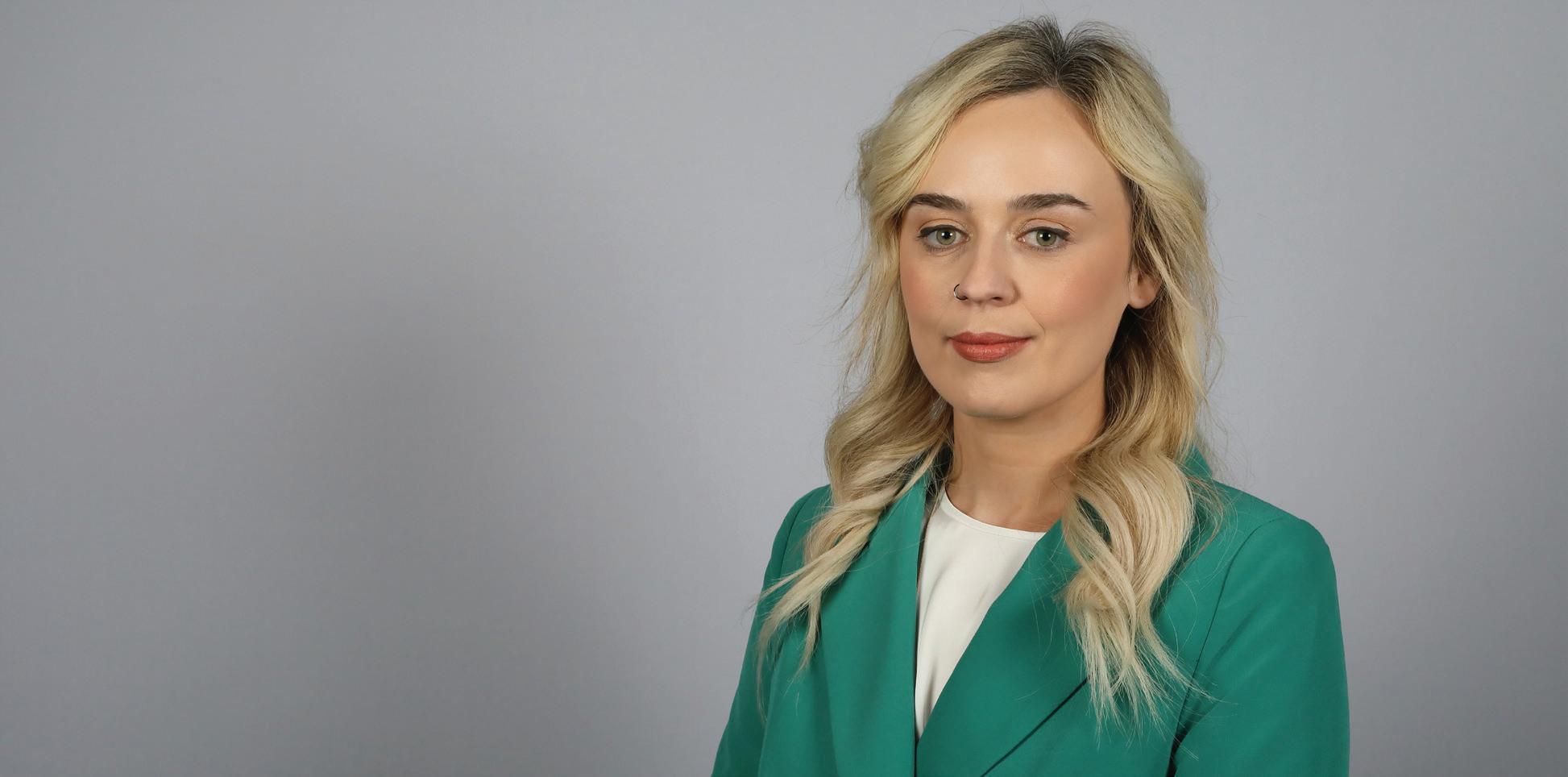
GRIFFIN: No choice but to escalate strike action
When power-sharing was restored to Northern Ireland in February, there was a profound sense of relief after two years of political paralysis, but there was another feeling too.
It was summed up powerfully by GP Ursula Brennan who told us: ‘The place feels like it’s been on fire.’ She added: ‘Our roads are in a desperate state, our schools are in a desperate state as well, and health is just the worst I have seen it.’
The symptoms of the NHS crisis in Northern Ireland –in many ways even worse than in the rest of the UK – are also clear from the situation of junior doctors, consultants and SAS doctors.
Junior doctors have announced further strike action after a breakdown in pay talks.
Two 48-hour full walk-outs have been planned, from 7am on Wednesday 22 May to 7am on Friday 24 May, and from 7am on Thursday 6 June to 7am on Saturday 8 June.
The BMA Northern Ireland junior doctors committee said there has been no movement on its asks, despite ‘some progress on non-pay issues’ since a meeting with Northern Ireland’s health minister Robin Swann after the first round of industrial action that took place in March.
NIJDC chair Fiona Griffin said: ‘This has left us with no choice but to escalate our strike action.
‘We are very disappointed that we have not been able to make any progress, but we must act on behalf of our members who voted overwhelmingly in favour of taking strike action for full pay restoration.’
Consultants in Northern Ireland are balloting for industrial action.
The five-week ballot opened on 7 May after talks between representatives from the BMA Northern Ireland consultants committee and the devolved Department of
Consultants had raised their concerns with the continuing erosion of their pay and the effect this was having on consultant recruitment and retention in Northern Ireland, and the subsequent impact this has had on patient care.
With a new pay deal for consultants in England having been accepted, pay talks continuing in Scotland and Wales, and higher pay available for consultants working in the Republic of Ireland, BMA Northern Ireland consultants committee chair David Farren said it was ‘imperative’ consultants in Northern Ireland did not fall further behind.
Last year, 77 per cent of respondents to a survey of BMA Northern Ireland consultant members said they were willing to take industrial action.
Dr Farren said: ‘We really feel we have been left with no alternative but to strike. Morale is at an all-time low among consultants here; we do not feel valued for the complex, challenging and stressful work we undertake, and we do not deserve to be paid less than colleagues in the rest of the UK or Ireland for doing the same job.’
Specialist, associate specialist and specialty doctors in Northern Ireland are also to be balloted for industrial action following an indicative ballot, in which 86.5 per cent of respondents said they would take strike action.
‘This is not a decision we have taken lightly,’ aid BMA Northern Ireland SAS doctors committee chair Leanne Davison. Dr Farren mentions the Republic of Ireland. As we have recently reported, there has been an increase in interest to work there from doctors, including those from Northern Ireland.
If the newly returned politicians in Stormont want to avoid an exodus of talent to south of the border, they need to listen.

Be resilient?
What do you think I’m doing?
‘Resilience’ has become a loaded word. It is a quality everyone wants and needs, but is it right to tell doctors to be more resilient when it is their workplaces that are at fault? Seren Boyd reports
The class sits in silence, straight-backed, breathing deeply, feet on the floor, minds focused on the moment. The turmoil down the corridor can wait.
If anyone is going to convince health professionals they need resilience training, it’s Dr Farnaaz Sharief.
Unerringly cheerful, resolutely positive, she insists everyone can benefit from learning how to respond to stress, through simple techniques such as adjusting your breathing and posture.
Dr Sharief has honed her training sessions and proved their worth in some tough environments, including prisons and the Palestinian territories. And she first became involved in this field after coming close to burnout as a junior doctor in Zimbabwe, where she had huge responsibilities and scant resources.
She has been a GP for more than 20 years and was medical director of Medway and Swale health and care partnership during the pandemic. She has also won an MBE for a project providing free mental health support to her community in Kent.
Mentions of mindfulness and meditation can raise eyebrows; she knows that. Yet, when she talks about the need for health professionals to build personal resilience, she is unapologetic.
‘We work in a very tough, gruelling and brutal environment and it is not that we can ever get rid of the stress,’ says Dr Sharief.
‘But one of the most powerful lessons I’ve learned in all this is that my mind is my responsibility, no-one else’s.’
For some, this is provocative talk. They find some of the wider conversation around ‘resilience’ unhelpful, misfocused. It requires context and strong caveats, they say.
Consultant psychiatrist Andrew Molodynski is open about the fact he has come perilously close to burnout himself in recent years. It was only because his trust eventually took action in response to his and others’ concerns about workload that he didn’t resign.
Talk of resilience makes him sigh. His principal objection is that it puts the onus on the individual to be able to cope – rather than focusing on the myriad ways the system is failing the workforce.
‘[An] example I’ve seen of that is having psychologists feeding into teams in intensive care and acute medical admissions units,’ says Dr Molodynski, the BMA’s mental health lead. ‘It just makes my heart sink. It became quite common during COVID, which was completely understandable then, but a lot of them have carried on because they’re such difficult environments to work in.’
What made the difference in Dr Molodynski’s workplace was systemic change: a modest injection of funding to recruit more staff and substantially reduce the existing team’s workload. ‘In amongst that, we did have things like awaydays, art-and-crafts classes, wellbeing packs and that kind of thing. And they were nice, they were helpful: I don’t laugh at them. But what properly changed things was systemic change.’
Stress hasn’t gone away, far from it. In psychiatry, for
example, it’s the relentless moral injury of not being able to give people the treatment that they need. None of it is easily fixed – and Dr Molodynski doesn’t dispute that a degree of personal resilience is essential in medicine.
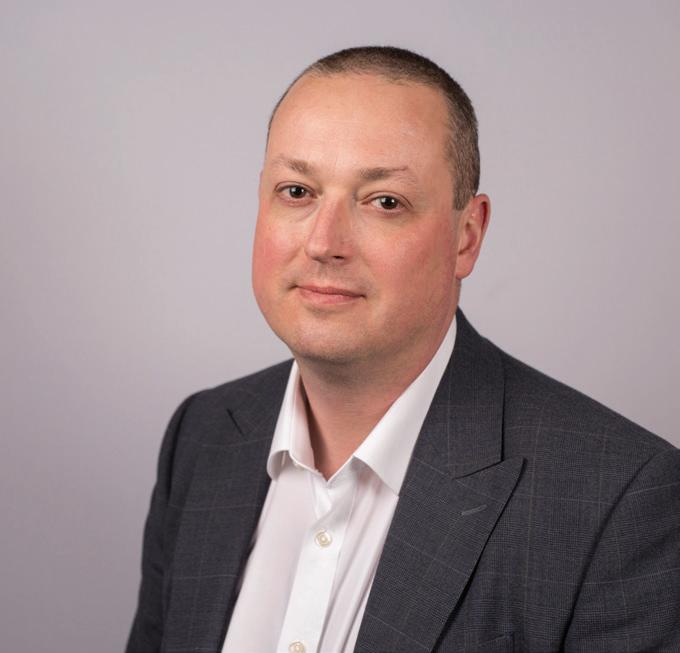
MOLODYNSKI: Talk of resilience puts the onus on the individual to cope
‘One wouldn’t want individuals to have no resilience at all. But the focus needs to be on reducing the toxicity of the health and social care system and working environment, rather than trying to artificially bolster people’s resilience to deal with a situation that is toxic.’
Mindfulness and yoga Chris Turner doesn’t pull his punches in response to talk of ‘personal resilience’.
‘I know why we say it; I know why we want it,’ says the Midlands-based emergency medicine consultant. ‘But the evidence doesn’t bear out this belief that the more mindfulness and yoga and running I do, the more demonstrably resilient I will be.’
He cites the research of US
‘The focus needs to be on reducing the toxicity of the system and work environment’
TURNER: 'We are failed by systems which don’t allow us to perform at our best’
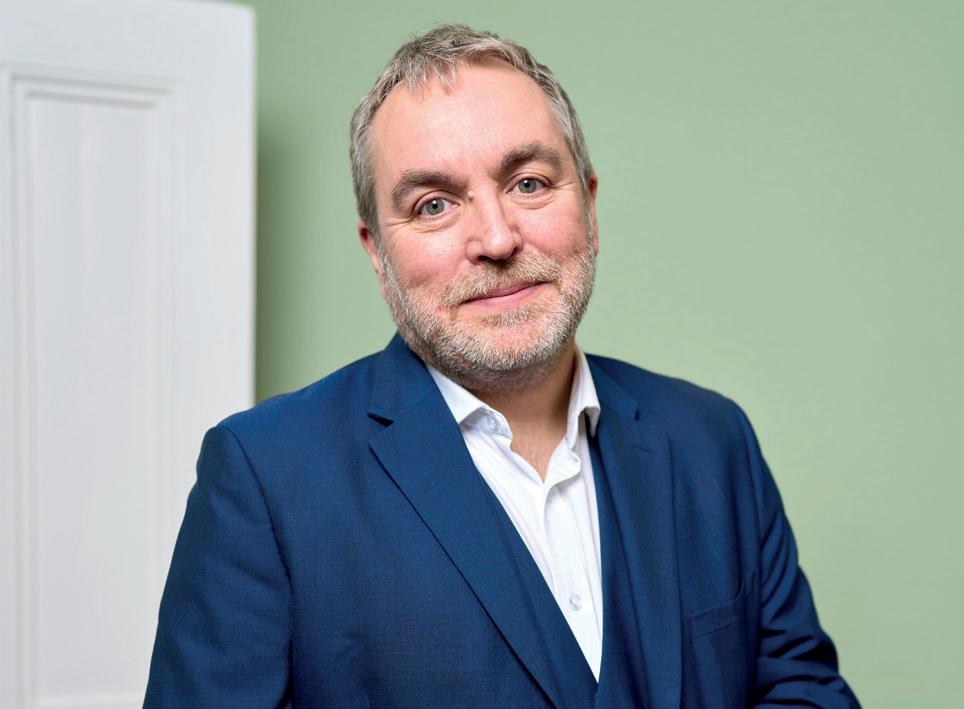
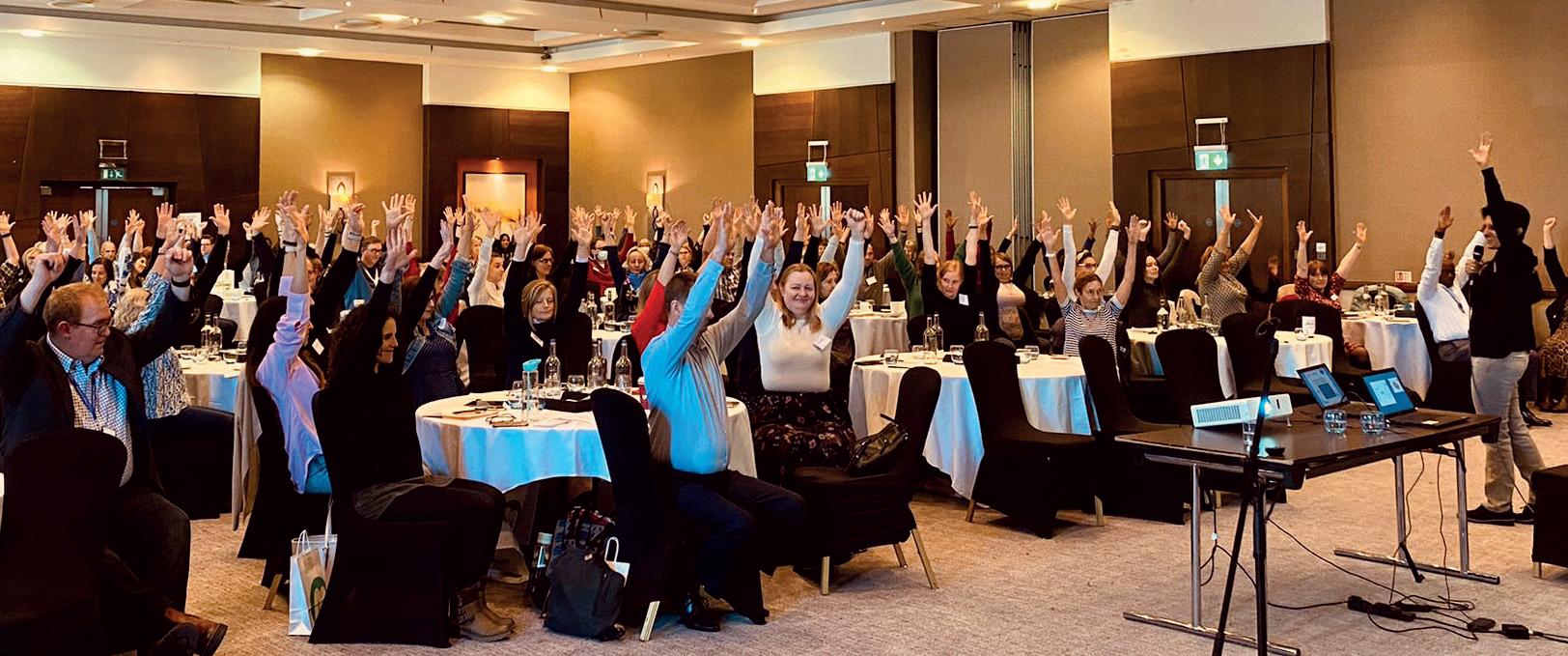
Dr Sharief (pictured right) conducts collective resilience training
‘One of the problems with personal resilience is that if I break, if I burn out, and it’s my responsibility, I’ve failed me’
haematologist Tait Shanafelt which concludes that personal resilience (‘what you can do for you’, as Dr Turner puts it) accounts for only about 20 per cent of our wellbeing at work.
The organisational frameworks which either help or hinder people’s ability to do their work well, so-called ‘efficiencies of practice’, have a much greater effect on our wellbeing, Professor Shanafelt insists. Negative factors can be anything from poor staffing levels to an ineffective leadership team.
‘These are the pebbles in your shoes, the things that stop you being able to do your job well,’ says Dr Turner.
‘People hate not being able to do a good job, particularly in healthcare where patients suffer as a consequence. And that has a direct, measurable impact on our own wellbeing.’
‘We need to start to accept the collective and organisational components to this’
The other major contributor to wellbeing, according to Prof Shanafelt, is esprit de corps, roughly translated as our connection with colleagues.
‘It is the connection that we make with each other, and the sense that we make out of the job and the difficulties in doing that job,’ explains Dr Turner.
‘Imagine I’m a scarecrow in the middle of a field, arms

outstretched, being battered by the elements. I can work on my core strength and my deltoids, so I can keep my arms out for longer: that’s personal resilience. But eventually I’m going to be beaten by the weather, which represents what work is bombarding us with.
‘In a culture of wellness, when I put my hands out, I’ve got one hand on your shoulder, the other on someone else’s shoulder, and you’ve both got your hands on other people’s shoulders, and so on, till we form a meshwork. The strength comes from connection.’
Broadly speaking, the ‘pebbles in our shoes’ are an organisational responsibility, whereas esprit de corps is collective, says Dr Turner.
‘Of course, we’re doctors, and we’re obsessed with being as good as we can be individually, but it’s not enough. One of the problems with personal resilience is that if I break, if I burn out, and it’s my responsibility, I’ve failed me. But that’s not fair: the evidence says we are failed by systems which don’t allow us to perform at our best.
‘If you want evidence for this, the single most resilient specialty in hospital medicine in the USA is probably
emergency medicine, Shanafelt says. And the single most burnt-out specialty in hospital medicine in the USA is emergency medicine.’
We need to reframe the debate, Dr Turner insists.
‘Personal resilience is not enough. We need to start to accept the collective and organisational components to this, and encourage cultures where people can flourish.’
Recognition of burnout among health professionals predates the pandemic but a slew of surveys and reports since COVID has confirmed it is ‘a widespread reality in today’s NHS’ (Health and Social Care Committee report, June 2021).
Of more than 3,000 GP registrars polled by the BMA as recently as March, 72.9 per cent said they were experiencing burnout and stress. Last month, NHS England reversed its decision to cut specialist mental health support for secondary care doctors through NHS Practitioner Health, after an outcry, including from the BMA. COVID stretched the limits of human endurance –and it also showed us that human endurance is not
without its limits.
Dr Molodynski is clear that one of the main problems with the health service today is the ‘lack of a sense of team’, in stark contrast to the system in which he trained.
‘When we were junior doctors, people knew we had fairly crappy jobs, worked long hours for little pay, and they were generally sympathetic to us. I had a boss who would know me and look out for me, and I would feel a loyalty to them. A lot of that has broken apart with the way that care is arranged, particularly in acute trusts.’
There are points of light –the success of peer-support mentoring such as that provided by the BMA is a good example, he says – but change needs to be root and branch.
Dr Turner, who founded the Civility Saves Lives campaign, points out it is team leaders who should set the tone of mutual respect and support.
But leaders too need the wherewithal to be able to create environments where their teams can do their jobs well, he says. If leaders’ hands are tied, they risk becoming burnt out, cynical and emotionally distant from their teams, as a form of self-preservation.
‘Empathy without the ability to make things better is just painful, and our natural response to this is to create barriers,’ says Dr Turner. ‘That’s when leaders can develop a form of toxic pseudo-resilience: they come to work every day but they no longer care because psychologically they cannot afford to.’
Resilience trainer and life coach
Dr Sharief doesn’t dispute
the need to focus on wider systemic pressures. But, for her, personal and collective resilience training are not mutually exclusive.
And until the health service receives a huge injection of cash or fresh political thinking, there are things we can do to protect ourselves, she believes.
Dr Sharief’s retreats and training sessions for health professionals focus on simple techniques (see box, below) that help increase ‘energy levels and focus’. And she insists that individuals with strong personal resilience can positively affect the work culture and strengthen teams from the inside.
‘In a team, you just need one person who feels centred, focused, positive, because that spreads. A lot of people come to us because they’ve seen the difference [training makes] in their colleagues and teams.
‘The first step in any
The four ‘F’s of resilience
Fuel:
Eat healthily, keep hydrated.
Re-fuel:
redesign or programme should be: How are our teams? How are their minds? Before we talk about change, let’s focus on the person.’
Online testimonials from healthcare workers of every grade and specialty who’ve had training through Dr Sharief’s not-for-profit, Manage Your Mind, certainly seem to bear this out. ‘Work hasn’t changed but we have,’ says one GP.
Reinforcing positive new habits as a team is an important step towards reinventing team culture, she says.
‘I’d encourage practices, teams everywhere, to spend even just a few minutes together doing something to feel good, whether that’s a walk at lunchtime or some breath work before you start in the morning.
‘It’s about being open and confident enough to say: let’s stop this and do something about it together.’
Get enough good-quality sleep.
Form:
Change your form. Sit straight, with feet on the ground, palms facing upwards on your thighs, shoulders back, chin up. Try ‘box breathing’ and ‘straw breathing’: changing the rhythm of your breath helps manage your emotions.
Focus:
Write down things you’re worried about, then focus on what you can influence.
‘In a team, you just need one person who feels centred, focused, positive, because that spreads’
Set small achievable goals: Start by trying to instil a new habit (eg drinking two litres of water a day) for four days. Seeing the difference makes it easier to keep going.
Don’t just feel good, do good: Do something practical with your new energy and focus, eg build breaks into your morning, stop answering calls after 6pm.
Focus on little and often: Recharge regularly eg 10-20 minutes’ breathing exercises a day.
Visit https://manageyour mind.org.uk
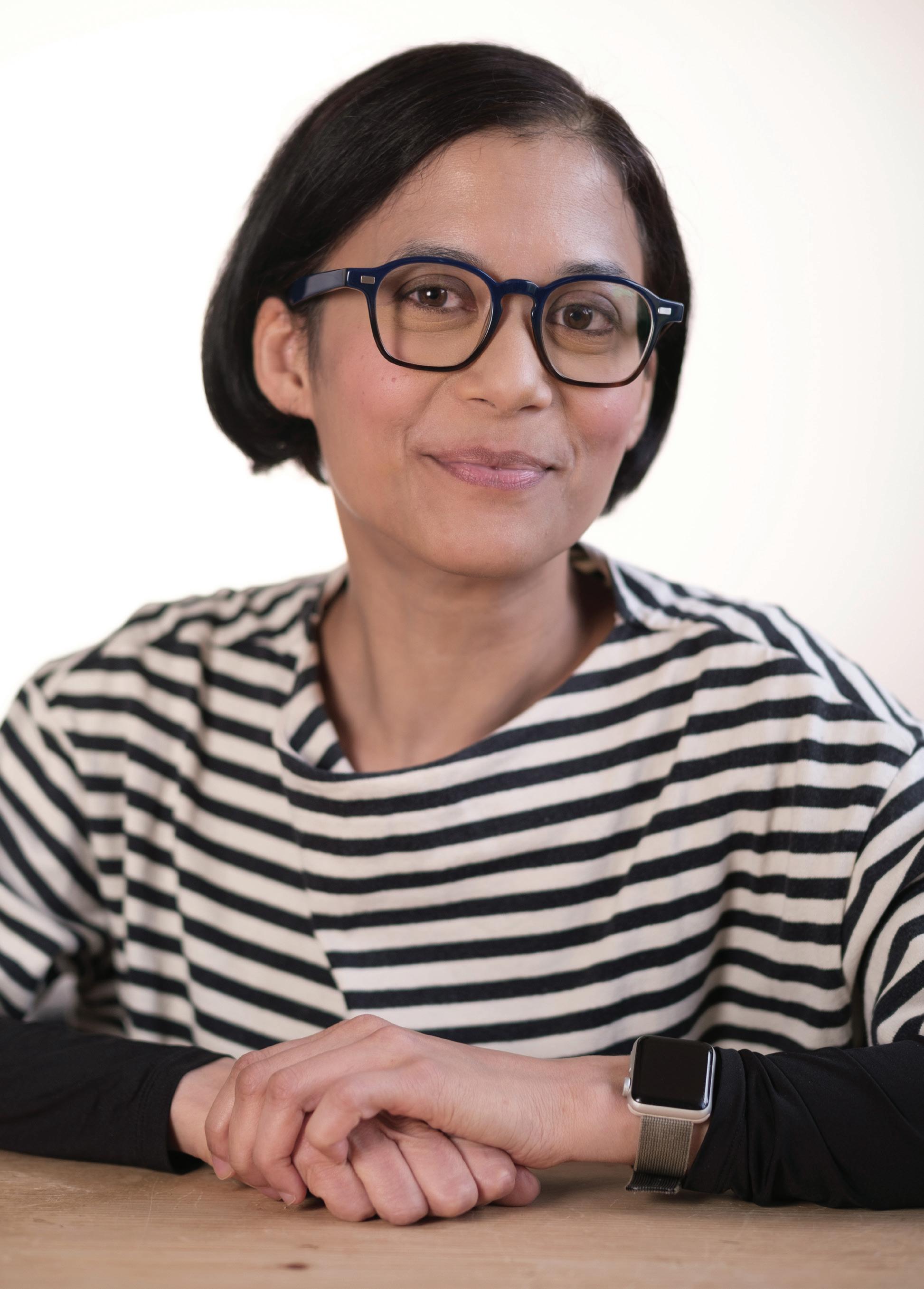
Autistic doctors often face stigma and discrimination, but with the right environment, they can thrive. Tim Tonkin reports
‘Ithink a lot of medical people just think, “I can’t be autistic, because that’s not compatible with being a doctor”.’
Edinburgh intensive care medicine consultant Rosie Baruah is one of many examples refuting the longstanding and widely held belief that autistic people are unsuited to a career in medicine.
‘Autistic
getting into and succeed at medical school and that very much can help you in medicine.’
people actually can flourish in medicine, and are probably very common in medicine’
Dr Baruah was already at an advanced stage in her career when, at the age of 46, she learned that she was autistic, following her teenage daughter’s own diagnosis.
She has since sought to use her own lived experience as an autistic doctor working in the NHS to support and hopefully inspire other neurodivergent doctors and medical students, as well as challenge the misconceptions around autism and the medical profession.
These misconceptions, often based on ignorant or simplistic understandings of autism, include the beliefs that autistic doctors lack empathy, have poor interpersonal skills and are unable to function within the unpredictable and high-pressure working conditions of the health service.
Despite having many aptitudes for medicine, the fact many doctors and students are either unaware they are autistic or choose not to disclose their status to others, illustrates the lack of understanding and visibility around autism which persists in medicine.
‘[Unfortunately] I think medicine is, as a profession, extremely ableist – and we are very judgmental of our colleagues who have medical problems or who take time off with burnout,’ says Dr Baruah.
‘The deficit model of autism and the medical diagnosis model of autism will not allow doctors to see themselves [as autistic] and I think people would really struggle to identify themselves as autistic because they are then worried of how they will be perceived, and actually, quite rightly so.’
‘I think medicine is, as a profession, extremely ableist’
‘Autistic people actually can flourish in medicine, and are probably very common in medicine,’ says Dr Baruah.
‘This is partly because autistic traits such as intensive hyperfocus, special interests and adherence to routine, all of these things help you succeed at
This fear of how employers, tutors and colleagues will perceive and respond to a disclosure of autism is something Dr Baruah experienced first-hand after seeing the reactions from other doctors to a BBC article in which she shared her story.
‘It was like driving past a car crash to hear yourself being discussed by people who don’t know you,’ reflects Dr Baruah.
‘There was one doctor saying how they would strongly dissuade any autistic child they knew from
pursuing a career in medicine, as they “simply can’t do it”.
‘I think that stigma absolutely plays into medical students and doctors who have not finished their training not wanting to disclose because they’re worried that their autism will be weaponised against them.’
The findings of a cross-sectional study of the experiences of autistic doctors published last year appear to confirm this fear of being stigmatised, with 72 per cent of those aware of their autism deciding not to disclose their status while at medical school.
could reduce the pressure many feel to engage in ‘masking’, in which autistic people strive to conceal certain traits and aspects of their personality, to ‘better fit in’ with those around them.
The act of masking poses a huge mental and emotional drain on those who engage in it and can also make autistic doctors vulnerable to taking on more responsibility in the workplace, further exacerbating the risk of illness and burnout.
‘I spent my induction sobbing in a toilet wondering why I was losing my vision in one eye’
The study also found 29 per cent of the 225 respondents to the survey had not disclosed their autism to anyone in their workplaces.
CAPTION:
The study’s lead author, medical education lecturer at Brighton and Sussex Medical School Seb Shaw, was in his first year of specialty training when he learned that he was autistic.
His diagnosis allowed him to make sense of the immense challenges he had experienced early on in his career.
‘I definitely struggled with transitioning to practice,’ reflects Dr Shaw, recalling the intense and, at that time, inexplicable mental and physical stress he felt during an induction to foundation year 1.
‘I spent [my] induction sobbing in a toilet for six hours wondering why I was losing my vision in one eye and why it felt like someone was putting a fire poker on my head. It was due to stress related to change and transitions but at the time I didn’t understand it.’
Dr Shaw, who like Dr Baruah, is a member of the advocacy group ADI (Autistic Doctors International) and serves as the group’s research lead, now dedicates much of his work to improving experiences in healthcare for neurodivergent patients and making medical education more inclusive of neurodivergent students.
Among the most alarming findings from Dr Shaw’s study was the extent to which autistic doctors can struggle with their mental health, with 49 per cent of respondents to the study saying they had self-harmed and 77 per cent having felt suicidal.
‘We are more aware that if we weren’t to mask, we’re probably going to upset people, and therefore we will always mask and always try to people-please,’ explains Dr Shaw.
‘I think particularly for doctors and autistic people, that need to constantly feel that one is achieving one’s best and being perfect and being so invested in one’s work makes you vulnerable.
‘Everyone was confused when I kept saying “I’m very, very burnt out” because to them I didn’t look it, and that’s common. For autistic people burnout is sudden and people [around you] don’t see it coming.’
Despite some of the unique challenges autistic doctors can face, Dr Baruah and Dr Shaw say simple adaptations and adjustments to working practices can often make a huge difference to improving outcomes.
Dr Shaw explains that during a specialty trainee 2 training post in general practice, the surgery agreed to him working a slightly different shift pattern.
‘There was one doctor saying how they would dissuade any autistic child they knew from pursuing a career in medicine’
In his paper, Dr Shaw argues that taking a neurodiversity-affirmative approach to autism, which includes peer support, mentorship, and supportive communication, in medical education and the workplace could help break down the barriers preventing many autistic doctors from disclosing their status.
Creating an environment in which autistic doctors feel confident that they will not be treated unfairly
This, he says, had allowed him to treat a greater number of patients in a shorter space of time simply because the change gave him a greater sense of predictability and stability.
‘You wouldn’t put a wheelchair user on a rotation that was in a pathology lab on a first floor with no lifts,’ explains Dr Shaw.
‘I think there’s an increasing willingness to think about these things, but there is still the ableist idea [among some deaneries and employers] that to be better is to make fewer adjustments.’
Dr Baruah says she would like to see medical education adopt an ‘autism acceptance model’ in its approach to training, in which adjustments for autistic
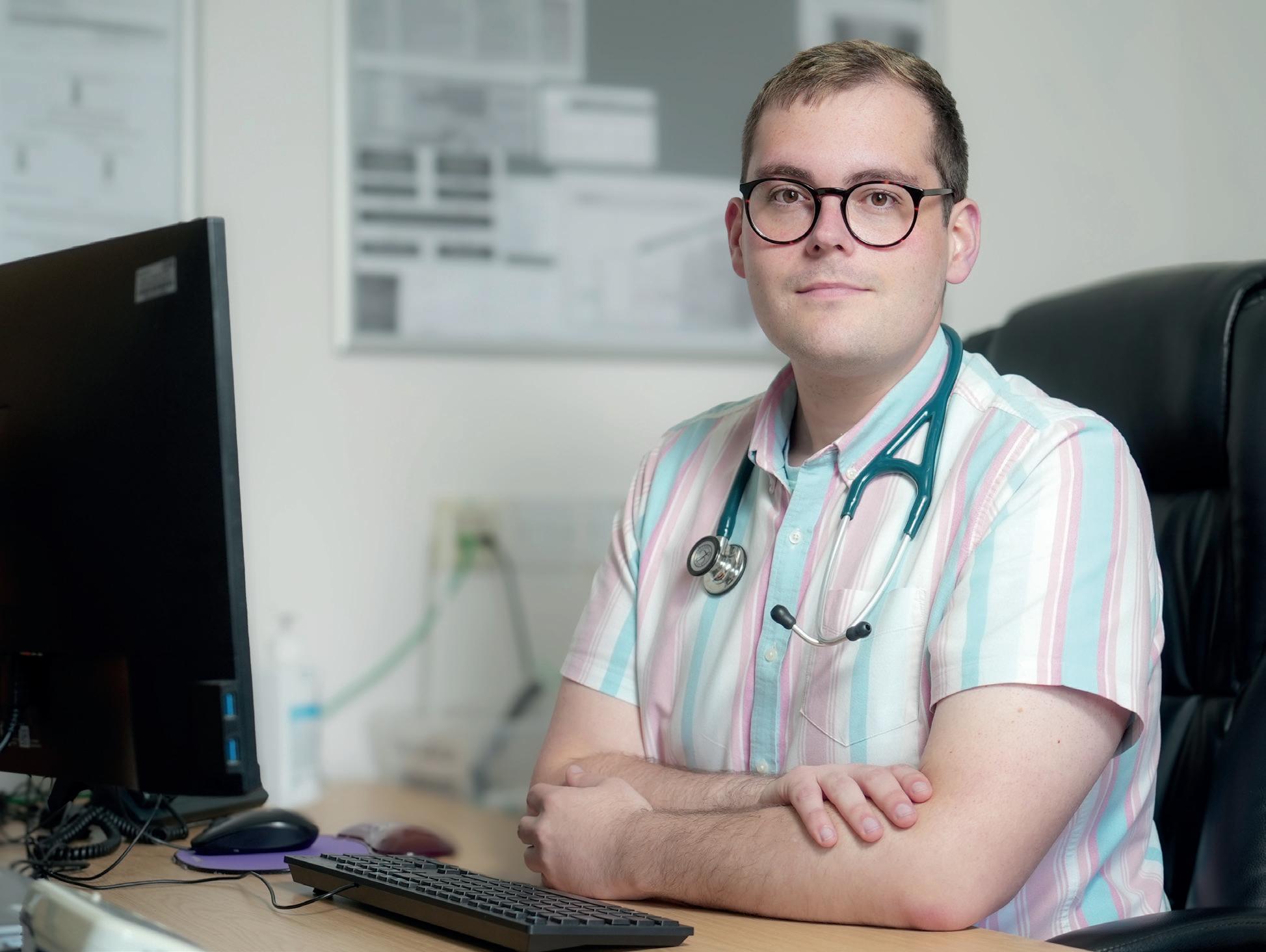
students would mean levelling the playing field rather than providing an unfair advantage.
‘It could be that an autistic student may be able to benefit from fewer attachments further away from home, so they still have their home environment and social network around them rather than being sent to a hospital 80 miles away for two months to do their medicine attachment,’ she explains.
‘That to me gives them equal opportunity to thrive within that attachment because, while nobody wants to move away, for the autistic student, it could genuinely lead to an inability to benefit from their educational experience.’
While autistic doctors can experience challenges because of their neurodivergence, these staff can also hold distinct advantages when delivering care.
One example of this concerns communication and the aptitude many autistic doctors have when it comes to following processes.
Understanding difference
Citing the example of the training given to all doctors around having difficult conversations and delivering bad news to patients, Dr Baruah says autistic doctors
used to scripting their social interactions could find these interactions easier than neuro-typical staff.
There is already a cultural divide between doctors and their patients – this is exacerbated in the event of a non-autistic doctor and an autistic patient, sometimes referred to as the ‘double empathy problem’.
With autistic and neurodivergent patients already facing more barriers to accessing healthcare, often because of previous bad experiences when engaging with the health service, and thus more likely to have poorer health outcomes, Dr Shaw says that having neurodivergent staff within the workforce is crucial.
‘That is where I think the importance of autistic doctors comes in,’ he says.
‘We can communicate similarly, we get the differences, we understand autistic people present totally differently, that we’re eight times more likely to be hypermobile, which means we feel pain differently; body sensations differently.
‘I think having neurodivergent and autistic people in the workforce helps to ameliorate [barriers to care] somewhat.’

‘BECOMING A GP PARTNER HAS BECOME UNATTRACTIVE AND FINANCIALLY RISKY’
Stunning
scenery, an apparently generous salary ... but the well-publicised vacancies on remote Scottish islands actually say much about the parlous state of rural general practice.
ITsounds amazing: GPs with a ‘sense of adventure and passion for remote and rural medicine’ are being asked to ‘ditch the rat race and embrace a more healthy work-life balance’ in Scotland’s Western Isles. What’s more, the jobs carry an impressive £150,000 salary (including various enhancements and allowances).
This stupendous sounding package was even reported in The Guardian, where it was described as a ‘record’ GP salary for a 40-hour week.
But while the advert extols the beauty, ‘shimmering beaches’ and culture of the Isles of Uist and Benbecula, the story behind the vacancies is a little less idyllic.
The vacancies – five of them – came about because the last two GP partners in the general medical services practice on the small island of Benbecula have handed back the contract, meaning that delivering GP services is now the responsibility of the health board, NHS Western Isles.
‘There are two partners in the practice and we’re both handing the contract back,’ says Kate Dawson, who has worked and lived in the Western Isles since 1990, working in Benbecula since 1992. ‘But what I absolutely want to make clear is that we’re not handing back the contract because of any failure within the practice. It’s because becoming a GP partner has become unattractive and financially risky.’
of the extra work, we lost the contract with Highlands and Islands Airports, and we dropped the contract we had with the military, and the dermatology and surgical clinics. Basically, we’ve contracted to make sure that core business can continue, which is general practice and the community hospital.’
The remaining two GP partners were each doing 10 sessions per week, as well as one in two on call. ‘It wasn’t sustainable, so we stopped doing out of hours,’ says Dr Dawson. ‘And the health board has made no bones about it that they wanted to take the community hospital contract to safeguard the service in the face of our recruitment difficulties and so that they could redesign the unscheduled care service within the same budget.
‘Taking the contract from the practice completely destabilises it and makes it financially non-viable over a very short period of time.’
‘There are two partners in the practice and we’re both handing the contract back’
As recently as 10 years ago, the practice was high earning, she says, with four GP partners taking on additional work, including providing medical cover for the community hospital, and running specialist clinics. It also held a contract to provide medical support to Highlands and Islands Airports, and to the local military, which has since downsized in the area.
‘There was a lot going on, but we were a thriving practice,’ says Dr Dawson. ‘But two partners retired, and we couldn’t recruit to replace them. We’ve dropped a lot
When her colleague said he no longer wanted to work full time, the only sustainable option was to hand back the contract, says Dr Dawson. It wouldn’t be fair, she says, to advertise for a new partner (even if they were successful) when it’s likely that they would lose the community hospital contract. ‘We could keep limping on with one partner, make our salaried GPs redundant, lose one of the practice nurses, downsize the admin team, and generally tighten our belts to make ourselves financially viable without the hospital contract – and that’s really unattractive. We’ve got a really good team, we provide excellent care to patients. And I think over the years we’ve proven you can run a successful practice and provide good-quality medical coverage to the community hospital. But I now feel we’ve got a job that we can’t advertise.’
Any incoming partner would have to ‘cough up a
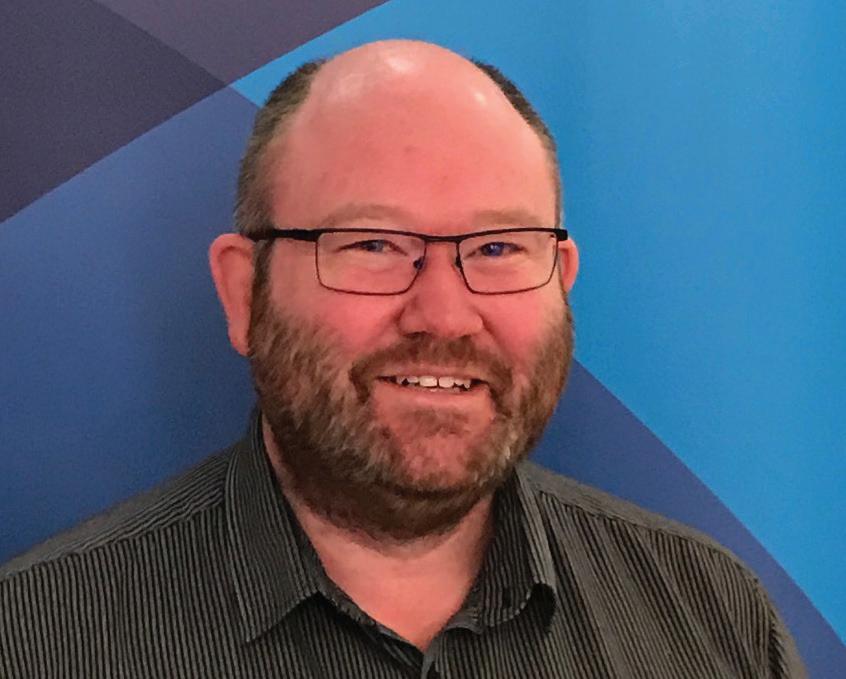
BLACK: There’s been a constant squeeze on general practice
MACGREGOR:
‘We are in crisis’
considerable sum of money’ to buy into the partnership (partly because it’s a dispensing practice with a lot of necessary stock) then run the risk of being in a practice that was going to lose most of its staffing through redundancy, and lose half its income, she adds.
‘It’s been impossible to recruit new partners. And it came to the point when I was embarrassed to advertise the job. I’d feel I was almost hoodwinking people to come into a financially unstable situation where we might be forced to hand back the contract anyway.’
When Dr Dawson spoke to The Doctor she was in her last week of being a GP partner. She had intended to retire two years ago on her 60th birthday, but instead has applied to take up one of the salaried posts. She wants, she says, to ensure that the transition to becoming a 2c practice (one that’s run by the health board) works well.
‘The reason the practice has been so successful is that we’ve put our heart and soul into it,’ she says. ‘We’ve worked exceptionally hard to make sure all our clinical governance is up to speed and that we’ve got a really good positive culture within the practice. So, my main goal is to make sure I’m there to support the practice into becoming a 2c practice successfully, so that we don’t lose that positive culture.’
She has, she says, a feeling of bitterness that they have been forced into this situation. ‘It’s one of the things I’m really cross about. All across England and Scotland and Wales and Northern Ireland, practices are becoming 2c practices, and it’s not because they are failing. It’s because they’ve been failed.
‘We’re still a very strong practice with high standards. We’re cost-effective and our continuity of care has been excellent. We don’t waste resources. But for years, the Scottish Government has talked about investing money in primary care, but general practice has not seen that investment. If anything, the way we’re supported has fragmented the team, in that we’re getting resources [staff] from outside, but nothing to support the business.’
Dr Dawson admits she is upset by the situation, but she is also pragmatic. ‘I’m not annoyed with any one person or organisation. ‘I’m not annoyed with myself or my colleague for needing to retire, I’m not annoyed with the health board for having to make hard choices about how it spends money. I’m annoyed that general
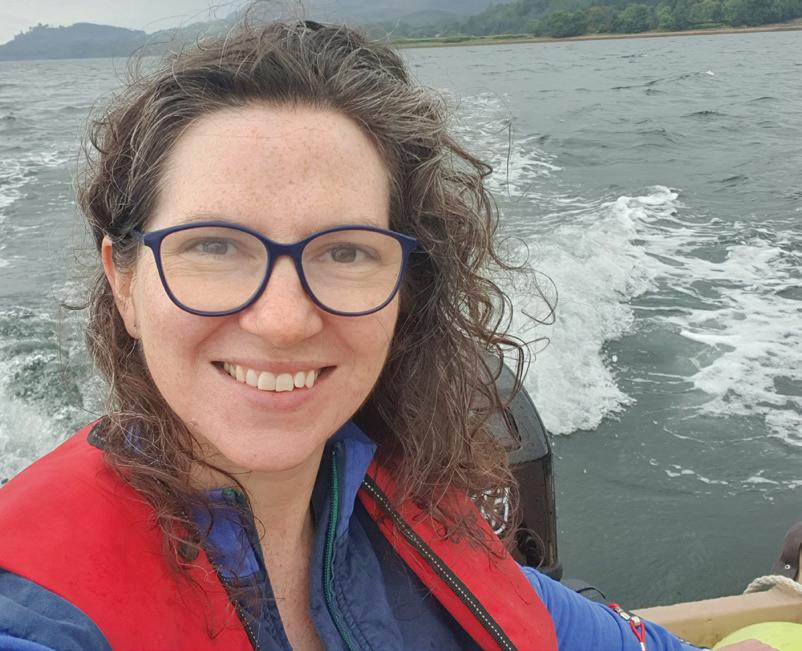
practice has not been resourced in a way that allows it to survive with a GMS contract.’
The £150,000 salary reported by The Guardian has been ‘massaged’, she says, to make it look as high as possible, and includes an islands allowance, a £10,000 golden hello, and relocation costs. ‘If you were the perfect candidate who is prepared to work 10 sessions a week and wants to take on all of the community hospital and outof-hours work, you could possibly squeak it to £150,000,’ she says. ‘But I certainly don’t have the appetite to do that, and I’m not in it for the money; I’m here for the practice and for the patients.’
She is ‘regretful’, she says, that she is not handing on the practice to another GP partner. ‘I know that there are really good GPs out there who love working in general practice. But I’m not seeing young GPs who want to take on the risk of being a partner. I’m sad that they’re not going to have the opportunities I’ve had.
‘But if we had stayed GMS, we would have been bankrupt within six months without the community hospital contract if we’d kept everything the same. I was doing spreadsheet after spreadsheet trying to make the books balance but we would have had to strip away so much. I think I’ve done the right thing in handing back the contract because we’ve safeguarded our staff in their jobs; I’ll be able to keep working in the practice as it goes over so that I can make sure the quality of the care we provide and the culture in the practice are kept steady. Our patients know there will be new faces in the practice, but I trust the patients to treat them with respect and make them feel at home and encourage them to stay, because that’s the way you get a stable staff, and in the long run, that’s what’s good for patients.’
Alida MacGregor, GP principal in Tighnabruaich, Argyll and Bute, and GP clinical lead for the Cowal Locality in NHS Highland, chairs the RGPAS (Rural GP Association of Scotland). She says the problems aren’t new but are worsening. ‘The biggest challenge is definitely the funding of rural general practice, and then recruitment of staff,’ she says.
‘We are in crisis. If we look at the number of practices that are handing their contracts back to the health
DAWSON: Being a partner is now financially risky
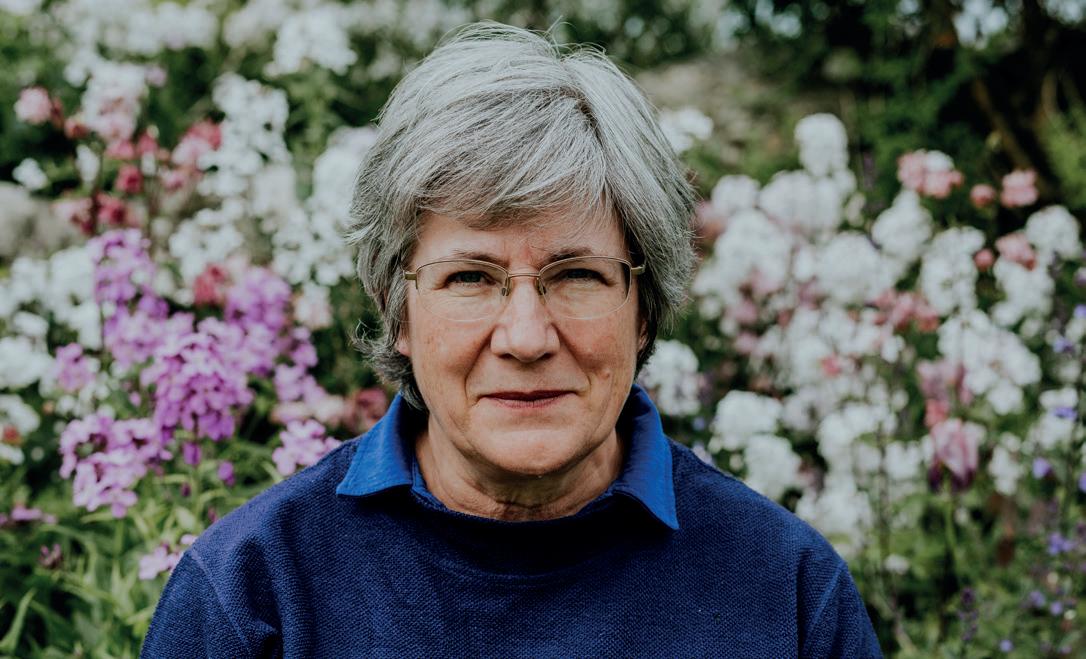
boards, it’s clear that we are in crisis.’
According to information collated by the BMA, the number of 2c practices increased in almost every health board area in Scotland during the 10 years to 2022, and most rural areas have also seen a reduction in numbers of whole-time equivalent GPs per patient. It’s hard to find accurate figures, however, because not every health board makes the number public.
It’s a hard decision for any GP to hand back the contract, she says, and ultimately patients are the ones who lose out. ‘There’s a risk of seeing all practices that hand back their contracts as failed practices, and that’s not the case,’ says Dr MacGregor. ‘I know GPs who have tried very hard for that not to be the outcome for their practice.
‘We know that 2c practices are more expensive to run compared with GMS contract practices, and one of the problems is that there are often not regular GPs there, so that distracts from continuity of care, which we know is something that general practice has historically done really well, and that it improves health outcomes.
‘If you have regular, stable GPs that are able to have flexibility and provide a service that meets the needs of a community, the patient probably isn’t going to see much of a difference. But often when a contract is handed back, there won’t be stable GPs, or enough GPs to be there. So it’s a mix of different emergency locum covers which is expensive. Satisfaction for patients and practice staff reduces and turnover of practice staff becomes an issue, which further erodes the continuity.’
it’s now becoming increasingly difficult to recruit on terms that are going to be reasonable for anyone coming on board.’ There is still an appetite among GPs to be partners, including younger doctors coming into the profession, says Dr Black, who is a GP partner himself, and he believes that the partnership model offers benefits to doctors and patients. ‘It’s the ability to control the service that you’re delivering and have influence over changes within the delivery models. GP partnerships have historically been very fleet of foot. We saw that in COVID, for example, where we changed the model of service overnight, and that was achieved because of the partnership model and that ability to enact change in a quick and rapid way. But it also offers opportunities to doctors because they’re able to do quality improvement and rapid change and deliver a service that’s suitable for the practice’s patient population.’
‘It’s not because practices are failing. It’s because they are being failed’
He admits that when he saw the job advertisement for the Western Isles, he – as an urban GP – had a slight twinge of envy, particularly when considering the £150,000 salary mentioned in The Guardian. But he adds: ‘While it sounds an attractive proposition on the face of it, a 40-hour GP week is really hard going. It’s decisionmaking on a rapid, repetitive basis. And in a rural practice, you’re talking about being first responder, you’re talking about enhanced levels of general practice because there’s not a hospital next door to them.
That’s important to know.’
Chris Black, secretary of Ayrshire and Arran local medical committee and a member of the BMA Scottish GPs committee, says there has been a constant squeeze on general practice. ‘Clearly there’s a workforce crisis and recruitment and retention in all areas is difficult, but it’s probably more marked and profound in rural areas.
‘There’s been a squeeze on the financial resource coming into practices to facilitate staff recruitment and maintain an element of partnership profit. It’s such that
A spokesperson for NHS Western Isles said the health board ran an extremely successful campaign to raise awareness of the GP vacancies, bringing nearly 50 applications. ‘NHS Western Isles is extremely thankful to everyone who supported our campaign and helped to share the benefits of living and working on the Western Isles. We will be carrying out interviews around mid-May.’
There are two 2c GP practices in the Western Isles, she adds. ‘Sustainability is a focus area in primary care due to the ageing GP workforce. NHS Western Isles supports GP trainees, student placements and rural fellows as part of our efforts to encourage younger GPs into remote and rural general practice.’
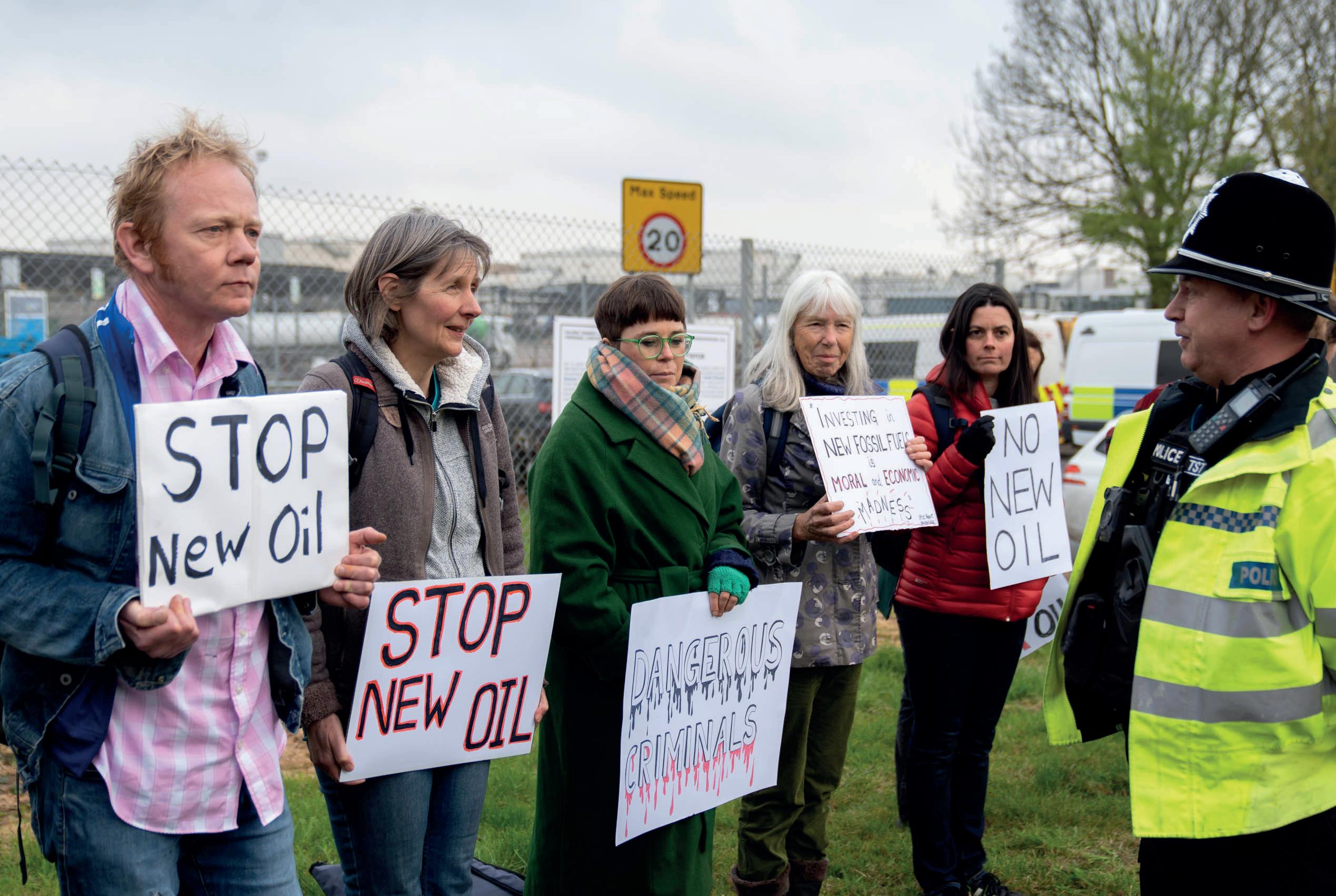
GP and environmental activist Sarah Benn says her five-month suspension makes no sense and may deter others – but not her –from peaceful protest.
Ben Ireland reports
‘The patient may look OK, but if you don’t spot signs like their heart rate creeping up and recognise the ongoing harm, they will crash. All of a sudden, you’ve got a moribund patient with no reserves. That’s it. Everything’s exhausted. Things go downhill really fast and you do everything you can to stabilise them.
‘You might have to open them up and ligate the bleeding vessel. If you don’t do that, disaster happens – that’s where we are heading with the planet.’
Sarah Benn compares the Earth’s trajectory through a globally recognised climate emergency with the early signs of serious blood loss, something ‘all medics have been taught’ to anticipate.
The GP of 32 years has just had her GMC registration

suspended for five months after a Medical Practitioners Tribunal Service hearing found her environmental activism amounted to misconduct.
In her submissions, Dr Benn urged the tribunal, and the GMC’s counsel, to consider her criminal actions – breaching an injunction by sitting in the road and holding a placard by an oil terminal, in protest at its continued burning of fossil fuels – as an exceptional
circumstance, one that does not affect her ability to practise as a clinical doctor.
Dr Benn believes the tribunal’s conclusion that her ability to practise has been ‘impaired’ because she served 32 days in prison for contempt of court is misguided.
She asked the tribunal – which raised ‘no clinical concerns’ – to take no action against her at all but suggested that if the panel truly believed her actions were ‘unbefitting a registered doctor’, they should erase her name from the medical register altogether.
The BMA believes the ruling sends a ‘worrying message’. Latifa Patel, chair of the representative body, says: ‘Dr Benn’s actions and her resulting custodial sentence posed no threat to patients, but her suspension implies they do. It is now time for the GMC and the medical profession to review the basis on which Dr Benn found herself in front of a medical tribunal.’
Dr Benn, who retired from clinical practice in 2022, will face a review process before the end of her suspension, at which point she will either have it revoked, extended or her registration erased altogether.
She told The Doctor how she feels the GMC is blindly following processes, rather than thinking critically about the issue, and has ‘missed an opportunity to do something brave and decisive’ by treating her case differently.
‘These procedures are not fit for purpose in this situation,’ she says. ‘I haven’t acted for personal gain. I have
done what I’ve done out of desperation. I didn’t want to break the law, but I feel that I had to do something. It was deemed sufficiently serious that I ended up in prison.’
Dr Benn joined a peaceful Just Stop Oil protest within a buffer zone at Kingsbury Oil Terminal on 26 April 2022 by ‘spreading out and sitting down across the road’, breaching an injunction which amounted to contempt of court. She was released on bail.
She returned to the terminal for another peaceful protest on 4 May 2022, this time standing on a grass verge at the side of the entrance holding a placard. This breached her bail conditions and resulted in eight days on remand in custody.
On 14 September 2022, Dr Benn attended another peaceful protest at Kingsbury, this time ‘sitting down on the road and blocking vehicular access’. As a result, she was jailed for 32 days.
She self-referred to the GMC over these incidents, as she had for previous incidents in 2019; over a public-nuisance charge in connection with the activist group Heathrow Pause, and as part of Doctors for Extinction Rebellion action, glueing herself to a government building and twice obstructing a highway.
Her actions in 2019 resulted in conditional discharges and a resulting GMC investigation was closed with advice given to her to ‘reflect’ on her actions.
This time round, the GMC brought proceedings as a result of another court’s findings and accused Dr Benn of bringing the medical profession into
‘Dr Benn’s actions and her resulting custodial sentence posed no threat to patients’
‘I have done what I’ve done out of desperation. I didn’t want to break the law’
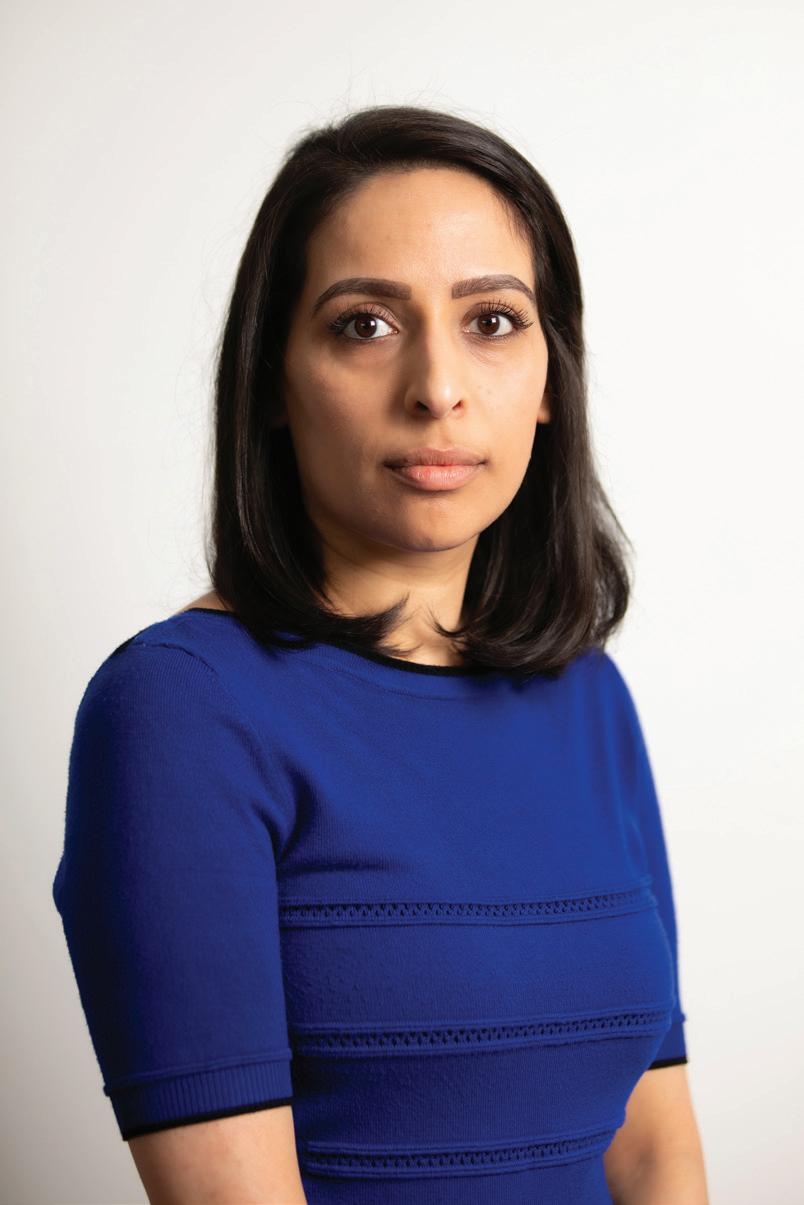
PATEL: Ruling sends ‘worrying message’
‘Trust is not justified in a doctor who is aware of catastrophic risk to life and health yet makes no concrete effort to address this’
disrepute by not acting within the law, therefore risking public trust in, and respect for, doctors ‘who are held to a higher standard of conduct and behaviour’.
In its submissions, the GMC argued Dr Benn’s conduct ‘needed to be marked to show that it was unbefitting of the profession’. And while the tribunal decided she does not present a risk to patient safety it concluded action was needed ‘to maintain public confidence in the profession’.
Suspension, it said, is ‘not intended to punish’, and ‘nor is it a response to Dr Benn’s expression of her views or to her undertaking protest action as a matter of social conscience’. Rather: ‘It is a consequence of Dr Benn’s misconduct and the impairment of her fitness to practise arising out of her repeatedly acting outside of the law.’
The tribunal noted how Dr Benn ‘made no apology for her actions in breaking the law’, rejected remediation and ‘stated that she would continue with her actions’, which they argued had affected police resources.
Taking no action, the panel said, would have been ‘inappropriate and insufficient’ and risked damaging public trust in doctors. However, it accepted Dr Benn is a ‘very experienced doctor’ with ‘positive testimonials’ and fully engaged with the tribunal process.
Evidence-based
Dr Benn spent most of her career as a partner at an inner-city GP practice in Birmingham, moving to a part-time salaried role in 2017 owing to burnout. She worked as a GP appraiser and for the Worcestershire COVID Management Service during the pandemic. She relinquished her licence to practise in 2022 and has since devoted her time to environmental activism and voluntary work. She became involved with Extinction Rebellion in 2019 before which she says she had ‘a rather conformist personality with a dislike of breaking rules’.
In her submissions, Dr Benn said she had a ‘moral duty’ to take action to protect life and health in the context of a severe threat owing to climate breakdown – and pointed to extreme scientific
alarm about the climate crisis.
She argued this was a fact, not a passionate belief, citing bodies such as the UN, the Centre for Climate Repair at Cambridge University, The British Medical Journal , and The Lancet
‘As an undergraduate and a practising doctor, I was trained in evaluating evidence and was expected to be guided by such evidence,’ she said in her witness statement.
Dr Benn argued the climate emergency, declared by the UK parliament in 2019, is also a health emergency – so staying quiet would be failing in her obligations under the GMC’s Good Medical Practice code of conduct to make patients’ health her first concern.
Taking non-violent direct action, she added, has a ‘long and effective history’ – referencing the likes of the suffragettes who ‘were reviled in their time, but are almost universally celebrated as heroes now’.
She added that what is deemed acceptable changes over time, giving the example of homosexuality by referencing the GMC’s recent formal apology for its historic regulatory action linked to homosexuality, when it said ‘times have changed and so have we’.
Dr Benn also submitted that doctors’ roles can be to guide patients through unfamiliar terrain of scientific facts versus opinion, such as anti-vaccination conspiracies, and to deliver bad news.
Further, she argued that most people would not conclude that because one doctor went to prison for protesting about climate change that all doctors are untrustworthy, and that she was aware of no patients who had complained about her professionalism owing to her activism, something she discussed with them ‘rarely’.
‘Worrying’ ruling
Dr Benn told The Doctor that, while people react with surprise to her actions because they often think ‘doctors do not do that sort of thing’, many people take what she says more seriously because she is a doctor, and this applied to those she met while in prison.
Having reflected on her previous punishments, as she was asked to by the GMC, Dr Benn says her conclusion was that the use of civil law to quash peaceful action is ‘manifestly not a good, moral and just use of the law’, and quoted the UN’s former special rapporteur Michel Forst who has said he is ‘deeply troubled at the use of civil injunctions to ban protest in certain areas’.
Dr Benn says she is ‘worried’ that the ruling will put other doctors off engaging in peaceful activism over the climate emergency – and other causes they care about – because of the seriousness of her sanctions.
That said, she believes her tribunal shows the GMC has ‘no issue with me protesting
about climate change’, only that it had led to criminal convictions, and pointed to its guidance on taking part in protests which says ‘doctors are entitled to their own personal political opinions’ and that the GMC should make decisions ‘based on the specific facts of the case’.
Dr Benn says she is more worried about fellow doctors who face similar hearings than her own sanctions, because she has retired from clinical practice.
She urged fellow doctors to take a level of action they feel comfortable with in support of causes they care passionately about, emphasising that her hearing and suspension came about because she ‘took it further’ by committing contempt of court – not because she stood up for what she believes in.
And while the risk of a longer prison term is a consideration on what further action she might take, Dr Benn says she will not rule out breaking the law again if she decides it will be beneficial to her cause.
She flipped the GMC’s argument – that doctors should be held to a higher standard of conduct and behaviour than those in unregulated professions –on its head, saying that is precisely why she is taking a stand.
‘If I choose to stay quiet, I am failing in my obligations. What would you have me, and other health professionals, do
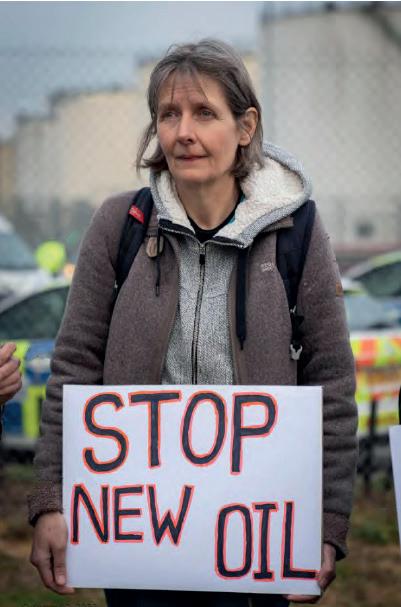
when we know of this terrible thing barrelling down the road towards us, and no-one with the power to stop it is choosing to listen?
‘Trust is not justified in a doctor who is aware of catastrophic risk to life and health yet makes no concrete effort to address this because it is too difficult, or seems too complex to even try.
‘As doctors we hold a respected and privileged position in society with corresponding expectations to do our duty – to protect patients, the wider public, and especially the most vulnerable.
‘I would love there to be a different way that seemed to me to have any plausible chance of getting us out of [climate] trouble, but I just don’t see it. There is no medicine on a dead planet, where there would be no tribunals and no GMC.’
engaging in activism
‘As doctors we hold a respected and privileged position with corresponding expectations to do our duty’
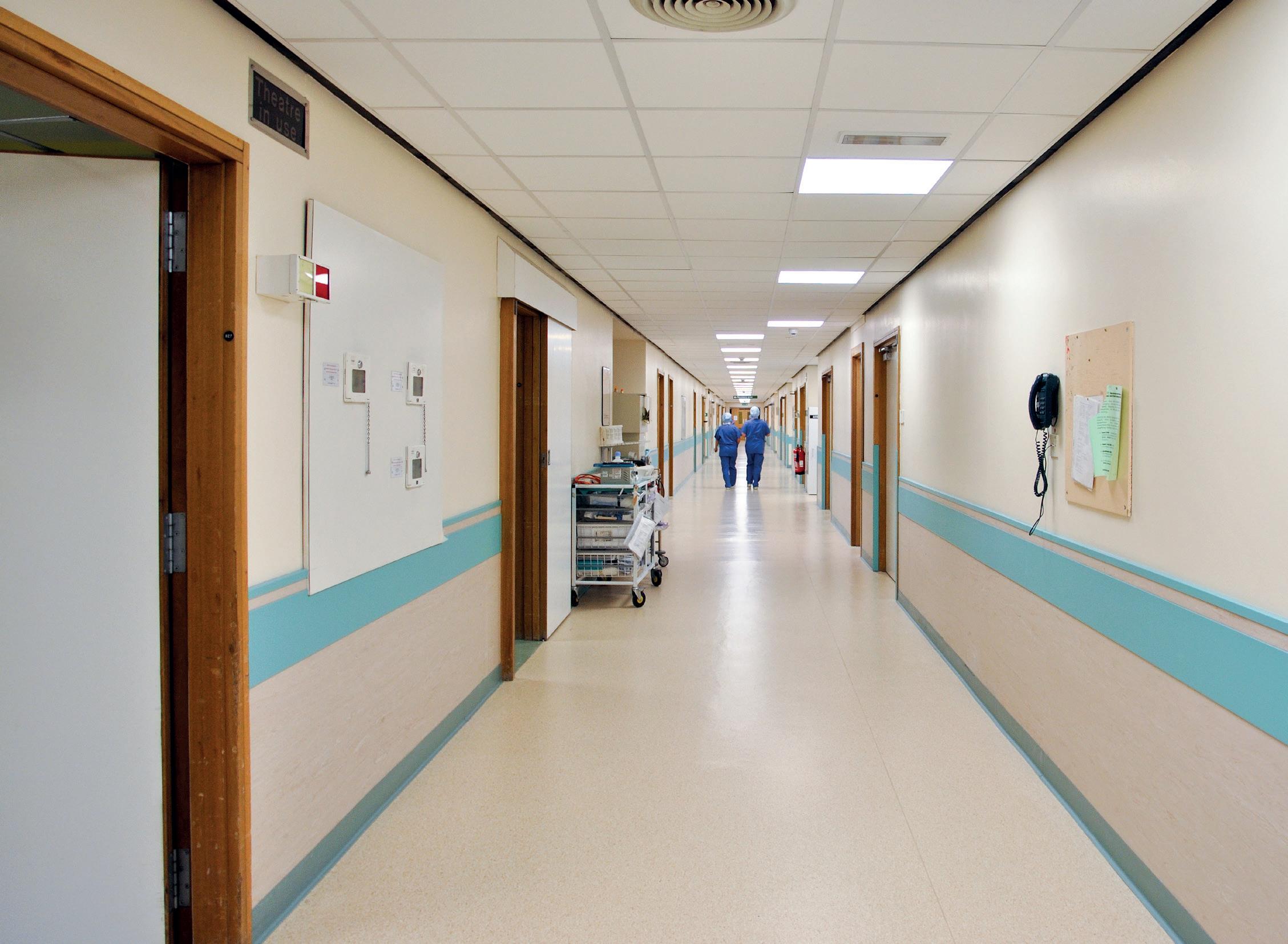
‘We need to stop the flow of doctors leaving the health service prematurely’
Doctors will continue to leave the NHS in large numbers unless working conditions are improved, according to a new BMA report. Tim Tonkin reports
‘Two steps forward and one step back.’
To the BMA, this turn of phrase aptly summarises the workforce crisis in the NHS and how the failure to stem the loss of existing and experienced doctors is undermining efforts to bring in new staff.
In a new and damning report titled When a Doctor Leaves, the association highlights how dire the staff attrition rate in the health service is, estimating that, in the 12 months from September 2022 to 2023, between 15,000 and 23,000 doctors quit the NHS in England ahead of retirement age.
The GMC’s most recent workplace experiences report found that, in 2022, one in seven doctors were taking ‘hard steps’ to leave the UK profession, compared with just one in 14 in 2021.
In its new report, the BMA warns bluntly
that the health service cannot seek to recruit its way out of a staff-retention crisis, and attrition could ultimately cost the NHS billions and diminish the quality of patient care.
‘We cannot afford to lose more doctors,’ the report states. ‘The UK has a shortage of doctors [and] while these shortages are finally getting some much-needed attention on the national stage, the policy focus is almost exclusively on expanding recruitment and training extra doctors. Better recruitment is essential, but we also need to stop the flow of doctors leaving the health service prematurely.
‘Unless there is immediate action to better retain staff, plans to abate the workforce crisis will fall short. Recruitment, without retention, will be inefficient and ineffective at addressing workforce shortages in the UK’s health systems.’
While the factors driving staff attrition are complex and vary hugely, the report identifies four areas of discontent consisting of pay, conditions, diversity and inclusion in the workplace and the level of development and support offered to doctors.
The fight for better pay is one that will be unfamiliar to precisely no one, with doctors across almost all branches of practice having taken or sought strike action in the name of pay restoration during the past 18 months.
While the phenomenon of UK-trained doctors opting to take up jobs overseas owing to declining real-terms pay is well documented, the BMA’s report also emphasises the role of student debt totalling tens of thousands is affecting career decisions made by recent medical graduates.
In addition to restoring long-term cuts to pay, the report makes clear a cancellation of debts and provision to cover costs for mandatory exams, would make a potentially enormous difference to keeping newly qualified doctors in the health service.
take breaks and access leave requests and enhancing access to occupational and mental health support services.
While the medical workforce and the NHS as a whole can be celebrated for its diversity, the need to improve inclusion and the challenges of bullying, harassment and discrimination towards staff with protected characteristics are unfortunately another factor in the issue of attrition.
The BMA’s 2022 report revealed 9 per cent of respondents had left their jobs owing to racism in the workplace, with 16 per cent taking sick leave or time off owing to discrimination, while doctors from the LGBTQ+ community having also felt forced to consider their positions owing to discrimination.
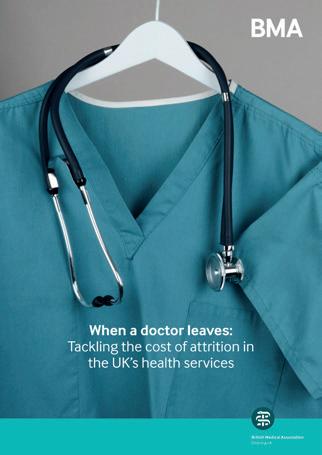
Poor working conditions, and the effect these have on doctors’ mental wellbeing, is a longstanding problem in the health service, and one the BMA’s report highlights as another prime cause of attrition.
In addition to the countless examples of anecdotal evidence provided to the association by its members, the GMC’s own research into attrition found that, in 2021, 28 per cent of secondary care doctors and 43 per cent of GPs taking a leave of absence from medicine pointed to burnout and work-related stress as the main motive for doing so.
Addressing unsustainable workloads and inadequate facilities and conditions are issues the BMA has campaigned for, and it reiterates recommendations made in its fatigue and facilities and mental wellbeing charters, as ways of addressing staff attrition.
These include employers committing to ensuring flexible working for all doctors and designing rotas to ensure staff can
Tackling discrimination and making the NHS more inclusive should therefore be seen as critical to reducing attrition, with the BMA’s report urging employers to implement a zero-tolerance approach to harassment and abuse.
It also calls for all doctors experiencing discrimination to have access to ‘fair and transparent reporting structures’ and for employers to adopt ‘organisation-wide accountability’ for addressing discrimination in the workplace.
Providing doctors with a supportive and nurturing working environments in which they can make the most of their skills and experience while also having the opportunity to enhance their professional development, is the final component towards addressing attrition cited by the report.
These include improving parental leave schemes and access to childcare, providing better support to doctors nearing retirement or those considering returning to practise from retirement, through ensuring flexible working arrangements.
Doctors with disabilities or long-term health conditions meanwhile can be helped to stay in the medical workforce through greater access to reasonable adjustments and ensuring that requests for such changes are met in a timely and supportive fashion.
‘Recruitment, without retention, will be inefficient and ineffective at addressing workforce shortages’
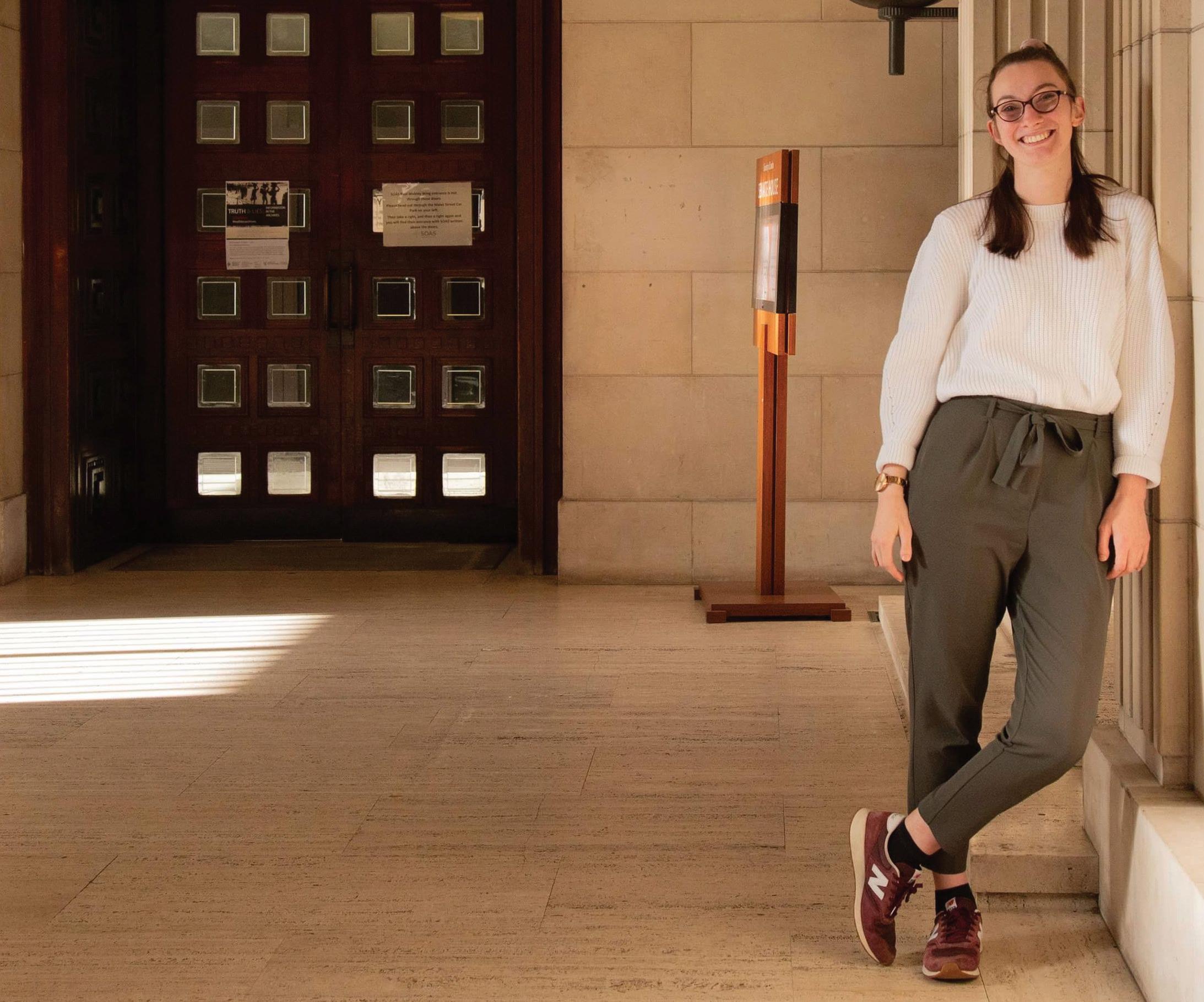
Deafness is thought to affect one in five adults in the UK, with this figure rising to 70 per cent of those aged above 70.
Despite its prevalence, deaf doctor Natasha Wilcock says awareness and understanding of the challenges deafness poses in society at large and in the health service and medical profession, means it sometimes feels like it is the ‘best kept secret in the world’.
From before she had even entered medical school, to her time as a student and now as a doctor working in palliative care, Dr Wilcock has spent years overcoming obstacles and challenging misconceptions about what it is to be a deaf medical professional.
Deafness is a common condition but it can feel like society’s ‘best kept secret’, says deaf doctor Natasha Wilcock. She tells Tim Tonkin about discrimination, the particular challenges of the pandemic, and working in a specialty where communication skills are key
to make people’s lives better.
From the very beginning, however, she faced opposition and even behaviour that many would view as discriminatory.
After being told by her college to contact each UK medical school individually to ask if they would, in principle, accept a deaf medical student, Dr Wilcock recalls how an evaluation one school required her to undertake made her seriously question whether medicine was for her.
‘I had maybe one or two sentences about deafness in a six-year degree’
‘I think that there are a lot of attitudes prevailing in society that deaf people are less intelligent or can’t do very academic jobs like being a doctor, which are of course completely untrue,’ explains Dr Wilcock.
‘Growing up, a lot of people told me that I couldn’t do it, that they had never known a deaf doctor. They would say, “how are you going to put stethoscope in your ear? You have hearing aids”.
‘[Even after qualifying] I have had consultants saying to me “how did you get into med school?”
Like most doctors, Dr Wilcock wanted to pursue a career in medicine from an early age, inspired by the idea of combining scientific knowledge with interpersonal skills
‘They asked me to do a test where I basically had to take my hearing aids out and face away from the examiner who then spoke a series of words that I had to repeat back. Obviously, I couldn’t do that. It’s like asking somebody to read something without their glasses on,’ recalls Dr Wilcock.
‘I know from current medical students’ experiences that a lot of deaf people are [still] facing a lot of difficult, inequitable, inaccessible experiences in medical schools.’
Based on her own experience, Dr Wilcock believes much of the ignorance surrounding deafness in her profession and healthcare settings stems from an inadequate amount of time dedicated to the subject during medical training.
‘I had maybe one or two sentences [about deafness] in
a six-year degree. Whereas you might have a week-long lecture series about a really rare, niche condition that you might see one presentation of, or never, during your whole career.’
It was this dearth of awareness and training, along with her own experiences as a patient, that led Dr Wilcock, as a student, to initiate ad hoc deaf awareness teaching at her own medical school at UCL, before ultimately going on to set-up IDA Training.
As an organisation, IDA seeks to improve doctors and other healthcare professionals’ knowledge and confidence when interacting with deaf patients or colleagues.
Deafness is commonly encountered among patients in end-of-life care settings either because of agerelated hearing loss or being secondary to a variety of illnesses including cancer and conditions affecting the brain or spine.
‘Palliative care communication is often very sensitive, very emotive and also needs to be very accurate because the most important thing for us as doctors is making sure that we are meeting the patient’s wishes,’ explains Dr Wilcock.
‘There’s often an assumption that deaf people just put their hearing aids or cochlear implants in, and then just go about their day’
‘I think there’s often an assumption that deaf people just put their hearing aids or cochlear implants in, and then just go about their day,’ explains Dr Wilcock.
‘Even if you’ve got your hearing aids in still, your sound experience won’t be the same as hearing people. You might be using lip reading or speech reading, and that’s really tiring and not very accurate. Deafness is part of a person’s identity and affects all parts of their lives.’
The daily communication challenges faced by deaf people was remorselessly brought to the fore during the pandemic and the widespread use of facemasks and other personal protective equipment, particularly in healthcare settings.
Still a final-year medical student when COVID-19 struck, Dr Wilcock campaigned vigorously for her workplaces and other trusts to adopt clear face masks to improve communication for deaf patients and staff.
While her efforts were often rejected, often on the grounds of cost, Dr Wilcock said that, in some ways, the pandemic years have inadvertently helped to advance awareness within the health service of the difficulties faced by many deaf individuals.
‘I think a lot of hearing people during COVID realised actually how difficult communication was for deaf people,’ she says.
‘A lot of people started to think about more flexibility in communication, such as holding lectures or meetings on Microsoft Teams that has an inbuilt live captioning software.’
Outside of her work with IDA, Dr Wilcock’s clinical career is centred in palliative care in an inpatient hospice setting, a specialty that, by its very nature, requires clear and effective yet compassionate communication and understanding.
It is also an area of medicine in which Dr Wilcock’s lived experience has provided her with enormously important insights.
‘Deafness is very common, but very often deaf people can be missed out in the conversation about their own death and dying process, because people haven’t thought to support their communication well enough.
Contrary to popular belief, Dr Wilcock says British Sign Language is a rich and highly expressive form of communication but admits signing specialised palliative-care terms such as ‘hospice’ can present challenges.
Added to this is the frequent lack of access to signlanguage interpreters for patients and staff, something which is as much an issue in the wider health service as it is in palliative care.
‘At the end of life, you want to be able to make sure someone is having the sort of communication they want,’ Dr Wilcock explains.
‘For example, clarifying with someone that, if and when they can no longer communicate for themselves, would they like their hearing aids to remain in so that you can appreciate the conversation going on around them, or whether they would like them removed so that they can be really quiet and peaceful?’
While still at a very early stage in her medical career, Dr Wilcock is already able to look back on a number of important, and continuing, contributions to her profession.
She says that, while her experiences have left her with mixed feelings as to what it means to be a deaf doctor in the NHS, overall she recognises the critical importance of deaf people being visible in medicine.
‘I think that being a deaf doctor is an amazing thing and I think you can have a really big positive impact on your patients and on the health service,’ she says.
‘I don’t think it is something that you should go into lightly, because it will be hard, but having visibility of deaf doctors is important, in part because it serves a basic purpose of helping people to recognise deaf people can be doctors.
‘I think it is also a really big deal that deaf patients can see themselves in their doctors and their healthcare staff.’
Thank you for the support – now offer it
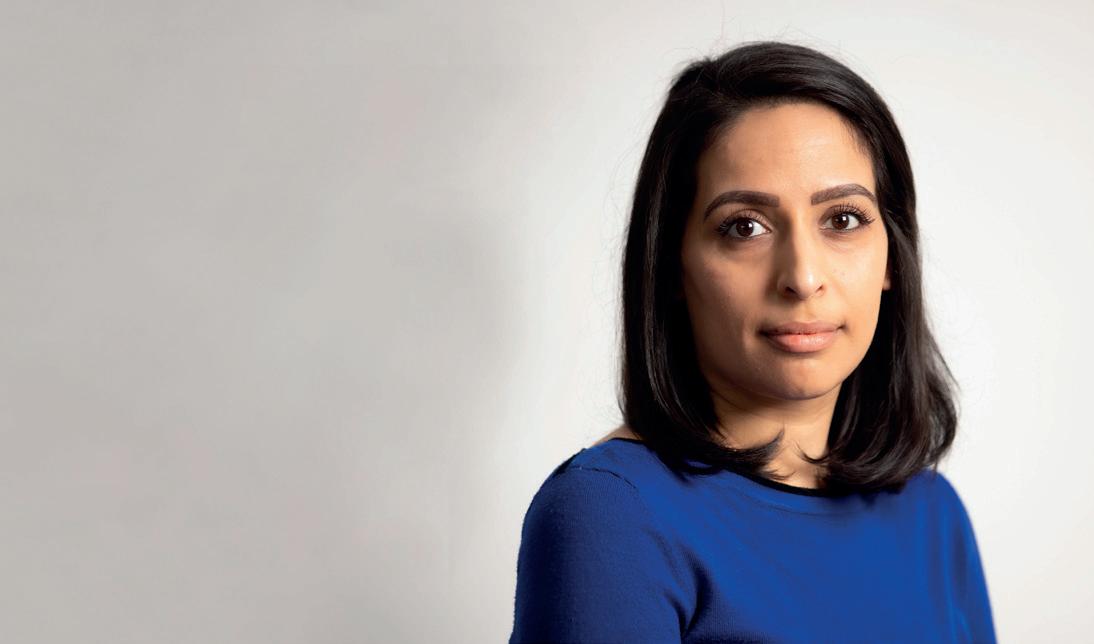
@drlatifapatel
I wrote about the difficulties I had experienced in this leadership role, last month. I said it can be brutal and that in recent weeks I have found myself increasingly at the centre of disputes and on the receiving end of poor behaviour.
I was elected to this role as someone who came from a number of under-represented minority groups in the BMA and across medical leadership. I was a woman, from an ethnic-minority background, and I was a junior doctor. Some of the topics I raised in last month’s column might be experiences many people in leadership roles have, but I also know people from my background experience them more greatly.
It was heartwarming to receive a number of messages of support from members and elected representatives after the magazine landed on doorsteps. People reached out to ask me if I was OK, and whether there was anything they could do to help. I would like to say to everyone that I am OK and that I appreciate your care. But I would also like to say that, yes, there is lots every single one of us can do.
There are things every medical student, every doctor, and every health leader up and down the UK can do – and the most important of those is to give people like me an opportunity.
I was recently discussing these very issues with a woman in a leadership role in one of the BMA’s stakeholder organisations. We hit on the sad truth that we rarely pick women for the most senior leadership roles in the wide-ranging institutions which make up the
The Doctor BMA House, Tavistock Square, London, WC1H 9JP. Tel: (020) 7387 4499
Email thedoctor@bma.org.uk Call a BMA adviser 0300 123 1233
@TheDrMagazine @theBMA
The Doctor is published by the British Medical Association. The views expressed in it are not necessarily those of the BMA. It is available on subscription at £170 (UK) or £235 (non-UK) a year from the subscriptions department. All rights reserved. Except as permitted under current legislation, no part of this work may be photocopied, stored in a retrieval system or transmitted in any form or by any means, electronic, mechanical or otherwise without the written permission of the editor. Printed by Warners Midlands. A copy may be obtained from the publishers on written request. The Doctor is a supplement of The BMJ. Vol: 385 issue no: 8429 ISSN 2631-6412
landscape of health, care and the NHS. And when we do – as in my case – it’s taken us 200 years to do so and that’s just not good enough.
We also hold them to a different standard and we treat them differently. What I’ve tried to do is show I can’t and I won’t lead like the men before me have. I will lead like a woman and a young parent. I may require flexibility and I may require support but, given the chance – I will deliver.
For people from under-represented groups, such as women, for example, it’s not through lack of trying, or lack of talent. It’s through lack of being given an opportunity. It wasn’t my achievement getting this role, it was a shared achievement of the 550 members of the representative body who saw me and collectively decided to give me that chance. Generally speaking, when you see women up against men for these sorts of roles it is the men who are elected.
So, to all of you – when you see a woman, or someone from another under-represented group, in one of these situations, put them forward or put a cross in the box next to their names. Or, if you’re in a position where you know elections are happening, why not go up to a woman who might make a good leader and say ‘go on, have a go, I’ll support you and I’m sure other people will too’.
As ever, I am always happy to hear from you and any questions you might have. To get in touch please write to me at RBChair@bma.org.uk or @DrLatifaPatel
Dr Latifa Patel is chair of the BMA representative body
Editor: Neil Hallows (020) 7383 6321
Chief sub-editor: Chris Patterson
Senior staff writer: Peter Blackburn (020) 7874 7398
Staff writers: Tim Tonkin (020) 7383 6753 and Ben Ireland (020) 7383 6066
Scotland correspondent: Jennifer Trueland
Feature writer: Seren Boyd
Senior production editor: Lisa Bott-Hansson
Design: BMA creative services
Cover photograph: Getty
Read more from The Doctor online at bma.org.uk/thedoctor

